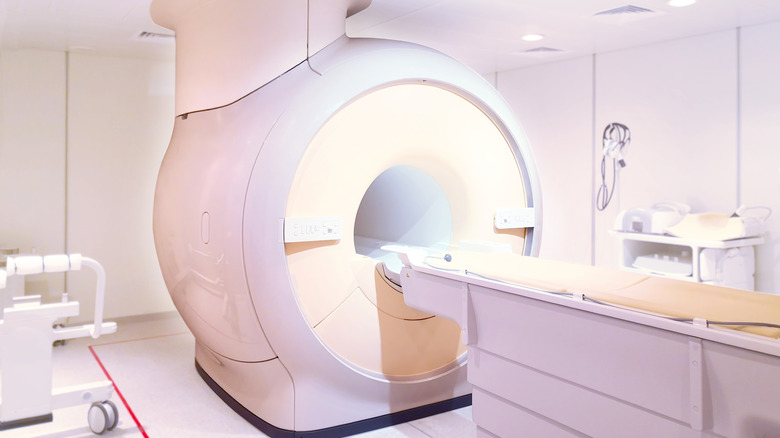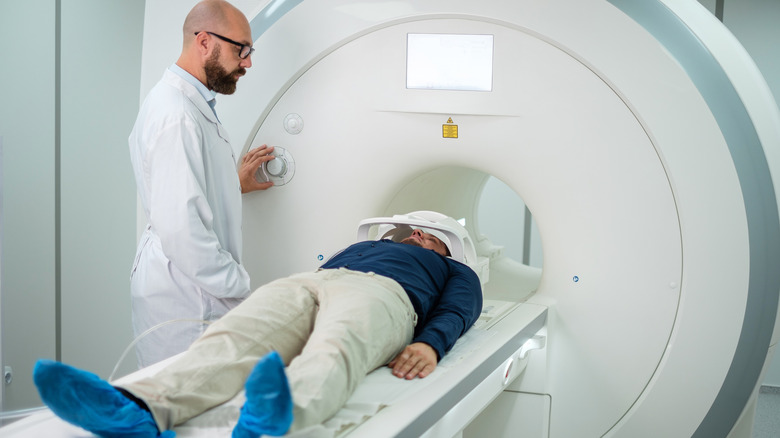The Difference Between A CT Scan And An MRI Explained
As part of diagnosing an illness or injury, a doctor might order a CT scan or MRI for you. These tests can seem very similar in the way they are performed, but they are functionally unique, and based on very different technologies.
MRI stands for magnetic resonance imaging, according to Healthline, and it uses radio waves and magnets to scan tissues, joints, and organs inside the body. Protons inside the body respond to the magnetic waves and form high-resolution images that can reveal injuries or abnormalities (via Johns Hopkins Medicine).
MRI scans are often used for diagnosing injuries of the joints, or problems in the brain, breasts, heart, and blood vessels.
MRI scanners are traditionally long, narrow, round chambers that can be difficult for people who are claustrophobic to tolerate. Open-air MRI machines have been developed that may be more comfortable. MRI scans are very loud and the patient will typically be offered headphones to protect their ears against the noise. People with metal implants in the body cannot undergo MRI scanning due to the powerful magnetic field used in the procedure.
This type of scan is more common
A CT scan, sometimes called a CAT scan, stands for computed axial tomography, and uses x-rays to take images inside the body. It's often used to find fractures in bones, tumors, blood clots or bleeding, and organ injuries (via Johns Hopkins Medicine). The images produced by a CT scan are not as detailed as an MRI, but the procedure is faster and less expensive.
For a CT scan, the patient lies on a table that moves through the CT scanner. It typically only takes a few minutes, whereas an MRI scan takes about 30 minutes. A small amount of radiation is used during a CT scan, but the risks are very low (via Medical News Today). Because of the radiation, a doctor may choose not to perform a CT scan on a woman who is pregnant, however.
Both CT scans and MRIs may be used with a dye to provide more detail in a certain area of the body.
Your doctor will determine which type of scan is necessary for diagnosing your condition. The level of detail and type of injury or illness will be key factors in the decision.


